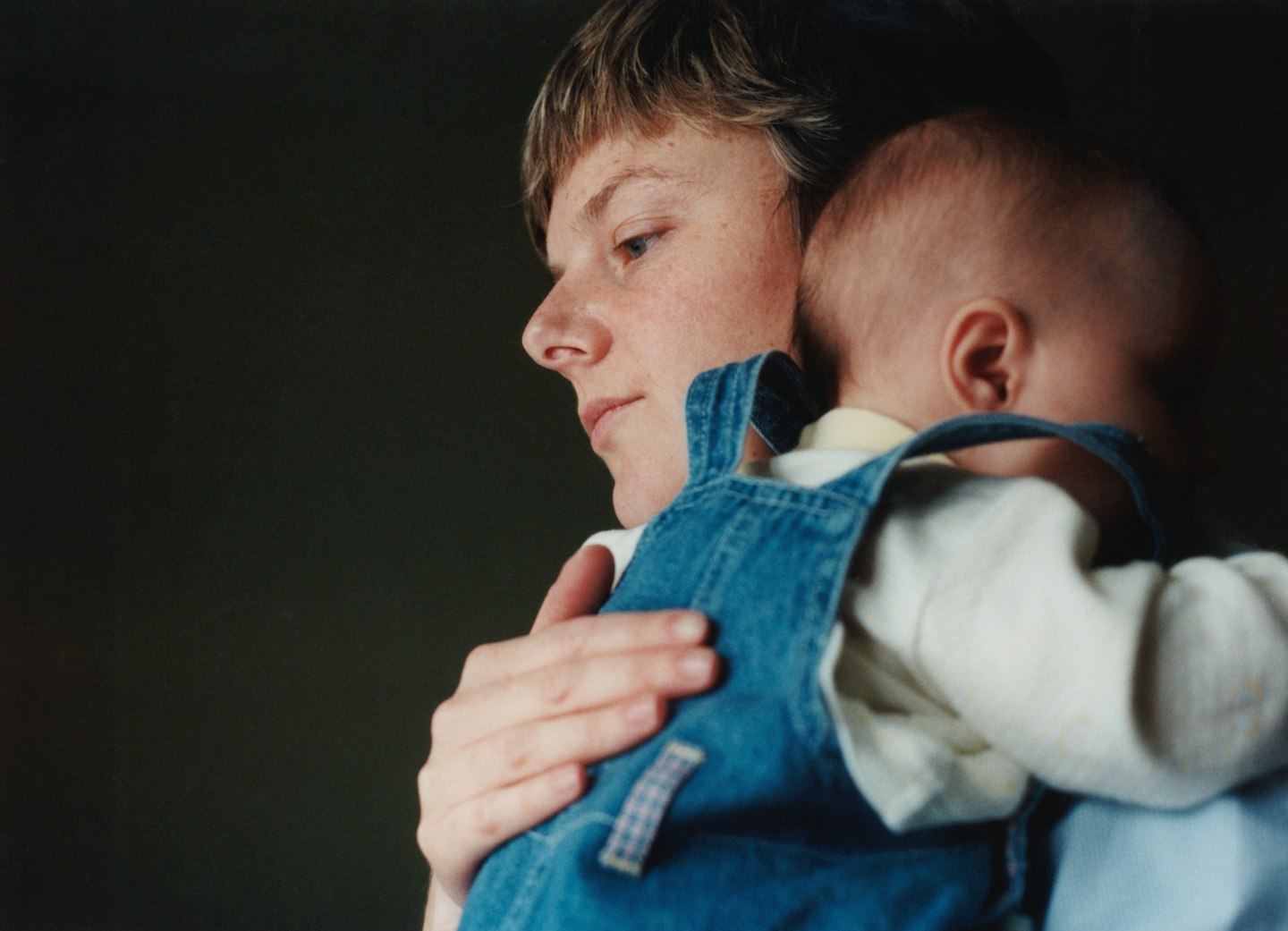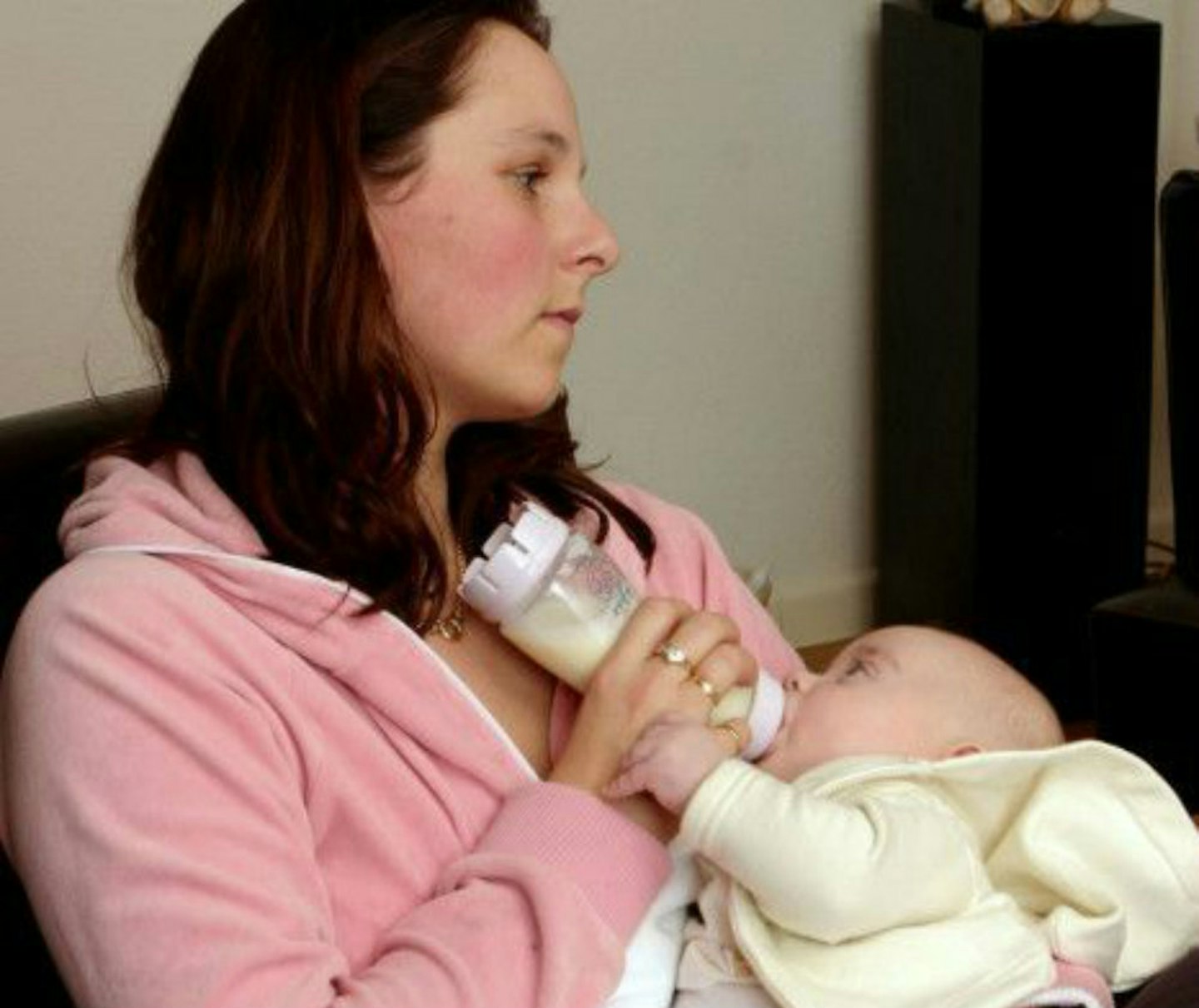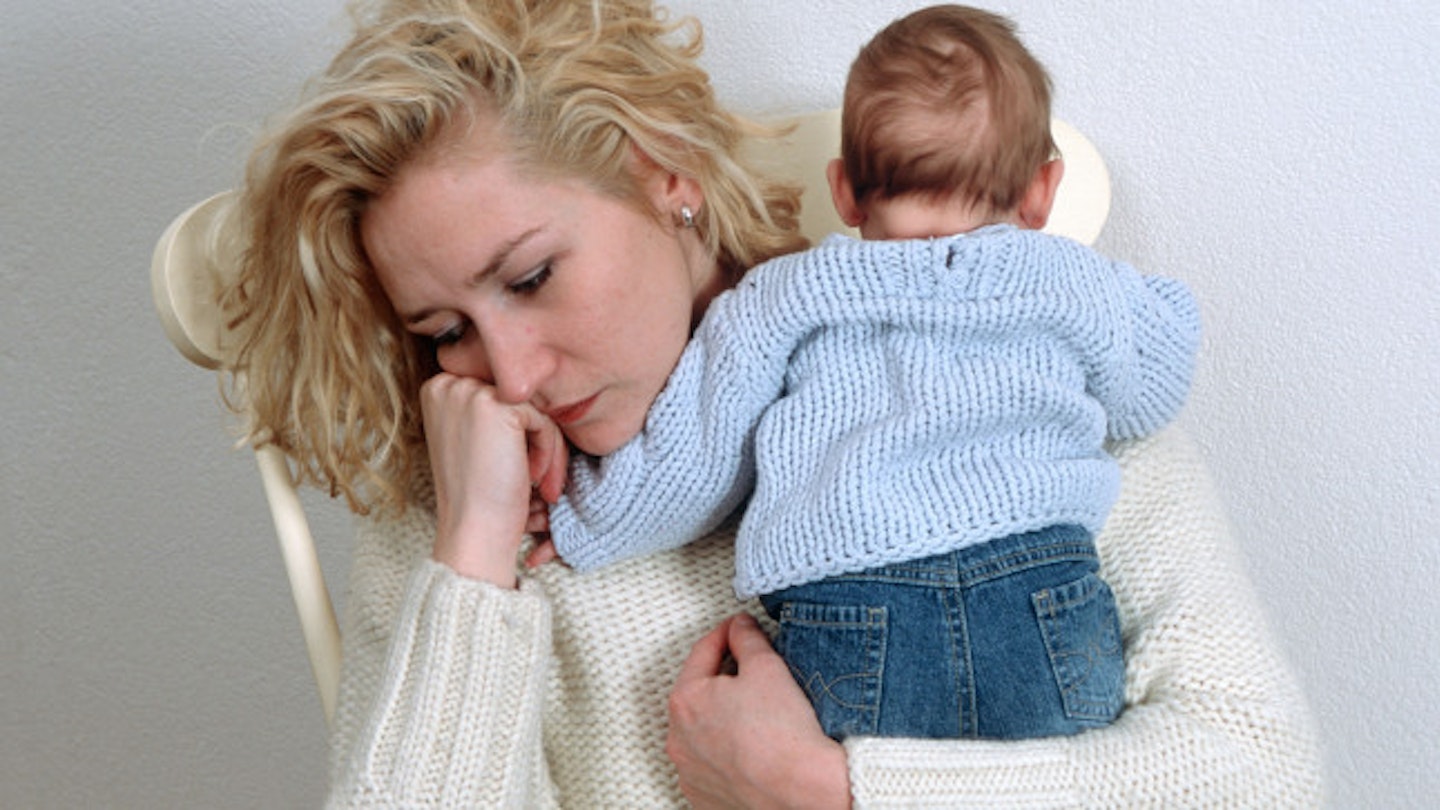Over 80% of women suffer from a mild form of sadness, fear, anger, or anxiety after giving birth. But if those baby blues don't go away after a week or two, it may signal a more serious problem…
What is postnatal depression?

Postnatal depression (sometimes known as postpartum depression) or PND is a type of depression some women experience after having a baby.
According to the NHS, it can develop within the first six weeks of giving birth, but is often not apparent until around six months - but it can also be diagnosed up to two years after the birth.
Is postnatal depression the same as the 'baby blues?
Absolutely not.
Tommy’s Midwives explain: “The ‘baby blues’ aren’t postnatal depression. Postnatal depression is when you have those feelings of being unhappy and they last for weeks or months.
"Depression can vary from mild to severe and it can affect women in different ways. You may find it difficult to look after yourself and your baby if you have severe depression."
Who does postnatal depression affect?

Any woman can be affected by post-natal depression, although teenage mothers are particularly at risk. Each individual is different, and may experience different symptoms.
Men can also suffer with postpartum depression, something that is often ignored, resulting in men suffering in isolation.
The following will put you at greater risk of developing postnatal depression:
How common is postnatal depression?
Postnatal depression is much more common than many people realise. In fact, it affects between 10 and 15 women out of 100 after birth - although it's hard to get accurate figures as so many cases remain undiagnosed.
What are the causes of postnatal depression?
Health experts do not know what causes PND, but it is thought to be the result of several things.
These may include:
Tommy’s Midwives add: "You can get postnatal depression ‘out of the blue’, even if none of these risk factors apply to you."
What are the symptoms of postnatal depression?
According to Tommy’s Midwives, the main symptoms of postnatal depression are:
If you have postnatal depression, you may also suffer from:
Anxiety is also often tangled up with postnatal depression - and the one can often cause the other. This can be quite complicated to unpick as the two illnesses obviously require separate treatment.
You may not necessarily experience all of these symptoms at once - and it’s worth remembering that postnatal affects everyone differently.
But if you are experiencing many of these feelings, and they are constant, or getting worse, talk to your health visitor or GP.
How can I tell if I’m suffering from postnatal depression
It is worth pointing out that many of the symptoms of postnatal depression (such as tiredness or a loss of energy) can also be a very normal part of motherhood; after all, your body has been through a lot and your little one probably isn’t letting you sleep at night.
You are the best judge of whether or not your feelings are normal for you. If you don’t feel right, or if you have some of the signs of depression and they last for more than two weeks, talk to your health visitor or GP.
What should I do if I think I'm suffering from postnatal depression?
Tell your midwife, health visitor or doctor how you feel - and don’t feel guilty for feeling low at what is traditionally such a joyous time. If they don't seem concerned and you are still feeling down, make sure you ask to see someone else. Not all health professionals are sensitive to the needs of mums with PND, who are too-often keen to just go away and stop making a fuss. You SHOULD made a fuss if you're unhappy and unwell. What's the worst that can happen - you find out you're actually just overtired and stressed out rather than actually ill?
REMEMBER: Postnatal depression is absolutely not your fault
What will my GP do if I have post natal depression?
Your GP will ask you some questions to determine whether you have postnatal depression. They will probably be from The Edinburgh Scale, which is a commonly accepted list of questions to ask mums who may have PND.
These may include:
What is the Edinburgh Scale?
The Edinburgh Scale is the questionnaire often given to women who are exhibiting some symptoms of PND.
If you answer yes to most of these questions, it’s likely you have postnatal depression and your GP will offer you help and advice.
Read more about how postnatal depression is diagnosed on the NHS website.
What treatment is available for postnatal depression?
Depending on the severity of your PND, your GP may advise:
Is there a way to prevent postnatal depression?
.jpg?auto=format&w=1440&q=80)
It is difficult to prevent postnatal depression; however, if you have suffered from it or any other mental health issues in the past, you must tell your GP or midwife. This will help prevent a delay in diagnosis and your treatment can start earlier.
Advice for women with post natal depression
London mum-of-two Bridget Hargreave suffered with PND after the birth of both of her sons. She shared her experiences, and those of many others in her book Fine (Not Fine). Here is some of her advice to help people who have postnatal depression:
1. Know what tools are available to help to deal with postnatal depression – ask your GP and look online but if you don’t get the answer you want you can ask to see somebody else until you find a doctor at your practice who you feel understands what you’re going through. As a new mum you should be prioritised for mental health services wherever you live.
2. Anti-depressants they will give you for PND are COMPLETELY fine if you’re breastfeeding. There is a lot of misinformation out there about taking anti-depressants while breastfeeding, so make sure you have the facts and don’t let scaremongers put you off.
3**. Go onto Facebook and Twitter and find people you can talk to** – often it can really help talking to someone who you don’t know in your normal life – on email or on social media. It helps you to be honest because you don’t feel you have to put on a front. Search for the hashtag #PND chat.
4. Do as much as you feel able – don’t let yourself be pressured into going out or meeting people. But at the same time there is some truth in the phrase you will get SICK of hearing: that you’ll probably feel a lot better if you get out for half an hour. Your body appreciates fresh air and sunlight.
5. Look after yourself – and this is super important for all new mums – make sure you eat as well as you can, and make sure you sleep as much as you can. Try and arrange to have time to have a bath, or watch your favourite show or whatever makes you happy at least once a day.
6. Find your local peer support charities Look online for groups you can attend – if you’re feeling up to it. Even if you don’t attend you will find local people to talk to and hopefully mentor you. Peer support can be hugely helpful at the right stage of recovery.
7. Remember you will recover PND is not a permanent illness – it will pass and whether it takes weeks or months, you will get through it eventually. Just saying this to yourself can help more than you may even realise at the time.
Celebrities who have spoken out about their experience with post-natal depression:
** Apprentice star Luisa Zissman: **
She told OK!: "I didn’t understand why I wasn’t like all the other mums, in love with my new baby. While everyone else was bonding with their child, I wanted to walk out the door and never come back. I felt so ashamed. I felt so bad that I didn’t want to wake up in the mornings. I wanted to roll over and die. It’s such a deep low."
Katie Price:
"It was like an awful knot in my stomach and I felt overwhelmed and even that people wanted to take my baby away from me. I got help and managed to get through it. I don't feel ashamed about talking about it and neither should anyone else."
Gwyneth Paltrow:
"It [exercise] was part of healing my postnatal depression. I thought I really need to exercise… I needed to sweat… I was like, “I need to get this out of my body."
**Stacey Soloman: **
"I’d never even heard of postnatal depression. After being diagnosed by my GP, I was scared to talk to anyone or get any help. I want people to speak up about it and be honest about it but even I’m nervous."
Where can I find more information and support?
You can visit the Tommy’s website for more information.
There are also several helplines available:
PANDAS: 0843 2898401.
**APNI **: 0207 386 0868
MIND: 0300 123 3393
You might also like to read...
